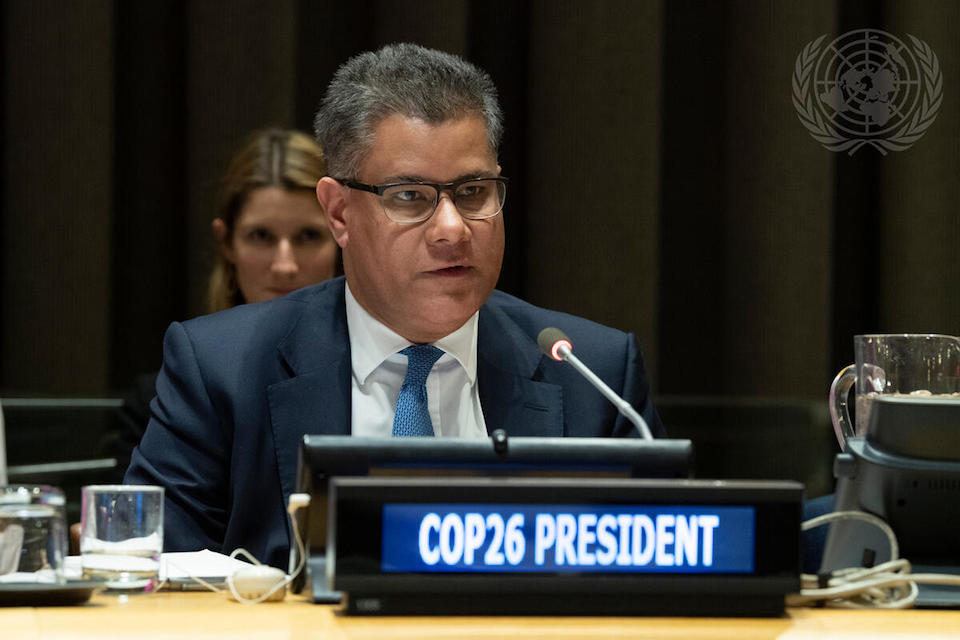By PENNY SWIFT
ME Research UK has slammed an analytical report published in the latest The Lancet Psychiatry that claims ME/CFS patients have “fear avoidance beliefs” that exercise will exacerbate their symptoms. This, the report maintains, is a major negative factor that perpetuates both fatigue and disability in Chronic Fatigue Syndrome (CFS) sufferers.
In other words, the report is claiming that because ME/CFS patients are generally afraid to exercise, they are reducing their chances of recovery.
But the truth is:
We all know that ME patients are highly motivated to get well, and more than willing to do whatever activity or exercise is appropriate for their personal circumstances, from a short walk to sitting up in bed. ME Research UK
A medical research body, ME Research UK was set up in 2000 to both commission and fund biomedical (scientific) investigations into the cause of Myalgic Encephalomyelitis (ME) and CFS, which are currently controversially referred to internationally as ME/CFS. The illness (ME/CFS) – or illnesses, since there is a growing school of thought that they are quite different from one another – is debilitating and widespread worldwide. In the UK alone as many as a quarter million people are affected, and there is no known cure.
In a statement titled 50 Shades of Avoidance published late yesterday on its FaceBook page, the research organization said that while the report might fascinate “professional cognitive-behavioural theorists,” the idea of fear avoidance in this context was both “inappropriate and absurd.”
The report is the sixth that has been based on the much publicized UK Medical Research Council’s (MRC) 2011 PACE trial – the largest ever study to focus on ME/CFS treatments. But, says ME Research, it is “difficult to understand” because it uses very sophisticated statistical analysis processes. While the psychosocial approaches suggested do have some effect, according to the original PACE trial data they benefit only 10 to 15 percent of ME/CFS patients. Most patients are not helped using the techniques suggested, “a fact confirmed time and time again when ME charities survey their members.” Quite simply, most people suffering from ME/CFS do not get any benefit from “these interventions.”
But the real tragedy, ME Research believes, is that whenever a new PACE trial analysis is published, “a rash of media stories trumpet its arrival.”
Their statement cites three media reports published yesterday, all which have “little or no relevance to the real, lived experience of ME patients.”
- The Independent declared: Chronic fatigue syndrome sufferers ‘can benefit from exercise’
- The Daily Mail announced: Chronic fatigue victims ‘suffer fear of exercise’: Patients are anxious activities such as walking could aggravate the condition
- The Daily Telegraph stated: ME: fear of exercise exacerbates chronic fatigue syndrome, say researchers
While the new report published in The Lancet Psychiatry deals with “rehabilitative therapies for chronic fatigue syndrome,” previous analyses covered cost-effectiveness, pain, so-called recovery, adverse effects of the illnesses, and statistical methods used in research.
Interestingly, ME Research UK maintains that this sixth report is the most complicated of all six because it deals with so-called “mechanisms” that might “underpin the effect of cognitive behavioral therapies (CBT) or graded exercise.” They also point out that the use of this very sophisticated statistical analysis further complicates the issue, making it even more difficult to follow the logic.
The Lancet Psychiatry Article
Titled Rehabilitative therapies for chronic fatigue syndrome: a secondary mediation analysis of the PACE trial, The Lancet Psychiatry article was funded by the UK MRC, England’s Department of Health, and various other UK research and health organizations. It is available free to all subscribers.
It maintains that when CBT is added to specialist medical care (SMC) or graded exercise therapy (GET), fatigue is more effectively reduced and physical function is improved.
Their main finding was that “fear avoidance beliefs” were the primary problem: “The results support a treatment model in which both beliefs and behaviour play a part in perpetuating fatigue and disability in chronic fatigue syndrome.”
The PACE Study
Based on the experiences of a mere 640 patients from England and Scotland attending hospital clinics for treatment of ME/CFS, the PACE trial study is understood to be the largest ever of its kind – certainly in the UK.
What the study did was to assess the safety and effectiveness of four different treatments and to the surprise of many, it found that GET and CBT were the most effective. As a result, it was suggested by these researchers that these treatments – both of which have come under huge international attack over time – should be offered to all ME/CFS patients.
Response From ME and CFS Sufferers
In a word: ANGER!
FaceBook exploded yesterday when people who have experienced ME/CFS firsthand read about The Lancet Psychiatry report.
- the treatment of us as patients is abhorrent
- awful press yet again meantime we continue to suffer alone
- about time the researchers changed the record
- they keep toying with us, like a cat with a mouse
- All picked up on a regurgitated research from 4 years ago. Wonder how many more… And when will it make it to USA
And lastly, a stance that most sufferers endorse:
The whole idea you can take a disease like this and exercise your way to health is foolishness. It’s insane.









Quality articles or reviews is the secret to interest the users to visit the web site, that’s what this web
page is providing.
Just wait a minute. I believe there are two salient points not emphasized enough in comments refuting the PACE TRIAL. In the biomedical field, all data must be revealed in scientific research papers so that other researchers can replicate their findings. Furthermore, before it is accepted as a matter of scientific fact, the research must be replicated by other scientists with no competing interest. If it is not replicated or if there is missing data for researchers, then the paper is retracted. The most recent example to date is the XMRV research paper in Science.
The fact that the authors of the PACE Trial refuse to release the data on which their research paper was based even under the FOIA, then summarily this research paper should be retracted. In addition, since results and conclusions stated in the PACE Trial have not been replicated by any other researcher outside of the UK, then the PACE Trial itself should not be considered as objective verifiable evidence until replicated. The same standard of scientific rigor and criteria required of research papers within the biomedical field must be applied within the behavior field. Otherwise, it is mere hypotheses, theories, and conjectures within a small contingency of powerful researchers of which many in the psychiatric profession fear to oppose.
We have an historical record where scientific technology has proven psychological theories obsolete and false. The most recent case is MS with the advancement of MRI technology. The results leave a vulnerable ME/CFS patient population suffering needlessly because of scientific turf wars among egotistical scientists. When you have a group of medical professionals blaming and vilifying the patient population for their illness instead of treating them, you wonder who really needs to have their heads examined.
Thank you for pointing this out Steven. It was presented as a comment by ME Research UK without any acknowledgement to Dr. Cheney.
It is worth noting that the closing quote – “The whole idea you can take a disease like this and exercise your way to health is foolishness. It’s insane.” – is from Dr. Paul Cheney, one of the world’s leading ME/CFS experts, who first got involved with this illness in the 1984 Incline Village outbreak. He was a doctor residing in Incline Village at the time, and has since seen and treated thousands of ME/CFS patients. As a result, he knows this illness very well, and also is quite familiar with the effect of exercise on his patients.
To find out the truth of what went and has gone on check out this book and see what was done to shut the research down on this illness: https://www.amazon.co.uk/Plague-Scientists-Intrepid-Retroviruses-Unabridged/dp/B00QVOKK1I/ref=tmm_aud_swatch_0?_encoding=UTF8&sr=8-1&qid=1418579879
The PACE Trial doctors know that people with CFS don’t have exercise fears. This makes their position even more untenable.
They know that this because of an earlier research paper published in 2005 which concluded
“The data suggest that CFS patients without a comorbid psychiatric disorder do not have an exercise phobia”
One of the authors of this paper is PD White who part of the PACE Trial group.
https://www.ncbi.nlm.nih.gov/pubmed/15992572
I hope that casual readers will begin to understand the frustration people with ME and CFS feel when dealing with this particular group of psychiatrists. The PACE trial cost over £5 million pounds of public funds and this money could have been spent on proper medical treatment with concrete benefit to patients.
Psychiatric treatment may be appropriate for people with a mental illness but applying their theories to a group of people with a purely neurological disease isn’t working. People with CFS have no more “psychiatric comorbidy” than any other disabled group. The majority do not.
There must be an element of accountability when public funds are being wasted. The public knows when they are being ripped off and a failure to provide results hidden by more spin.
Very well done Ms. Swift.
The psychiatrists now milking fortunes from Britain’s NHS based on their cruel and false allegations have launched this recent assault on reason because they are every day threated by new science emerging about ME and CFS. The recent Stanford report on brain abnormalities confirmed once again that ME (which was re-christened “CFS” by the American government in 1988) is a disease with complex interaction of neurological, cognitive, immune, and energy generating dysfunctions. The accumulating mountains of evidence — now more than 4,000 peer-reviewed scientific papers — reveal the true nature of this disease and threaten to put these fat cats out of business. That’s why they react so desperately with these statistically tormented reports, trying to divert those who spend money and award honours from noticing that these “emperors” are stark naked.